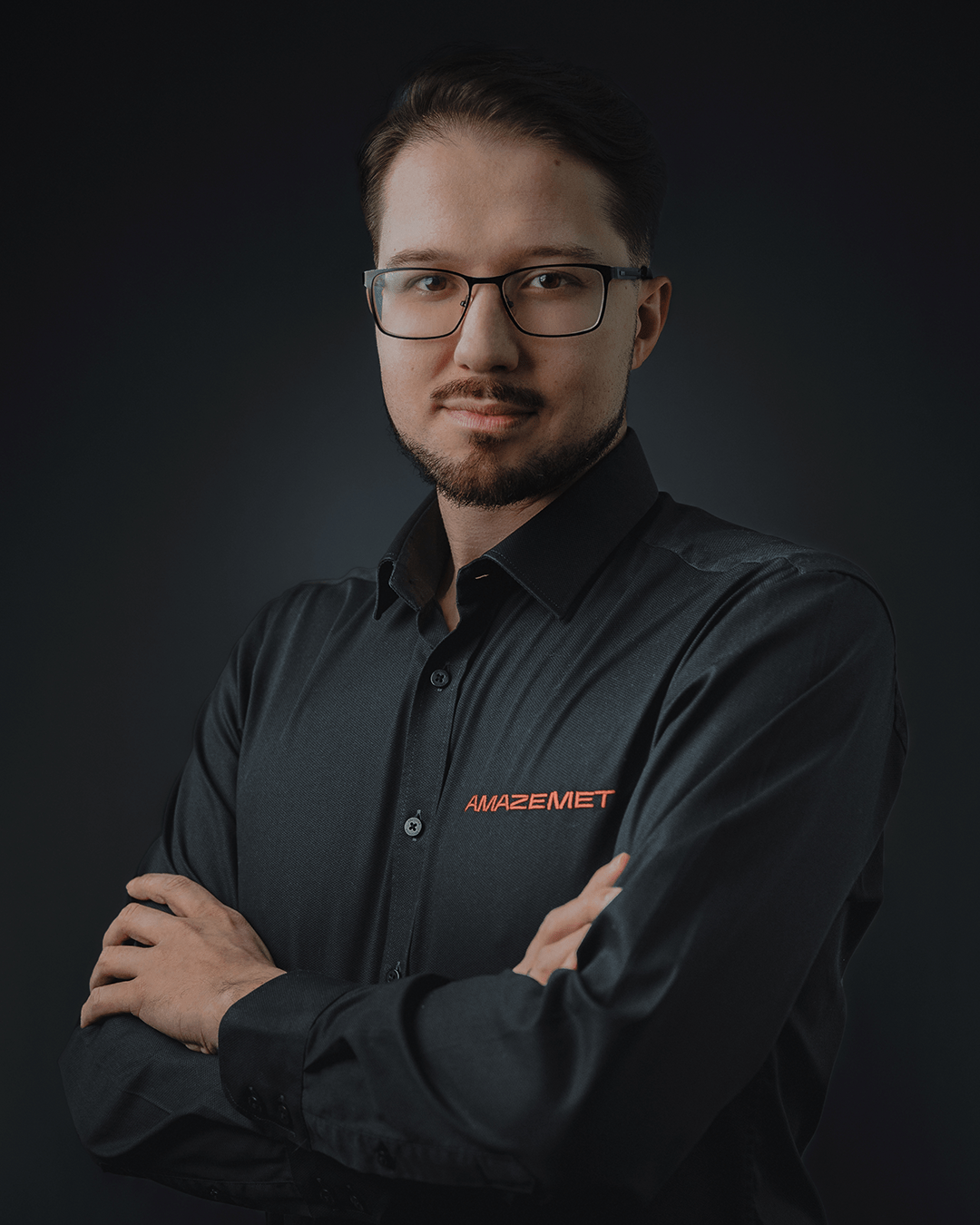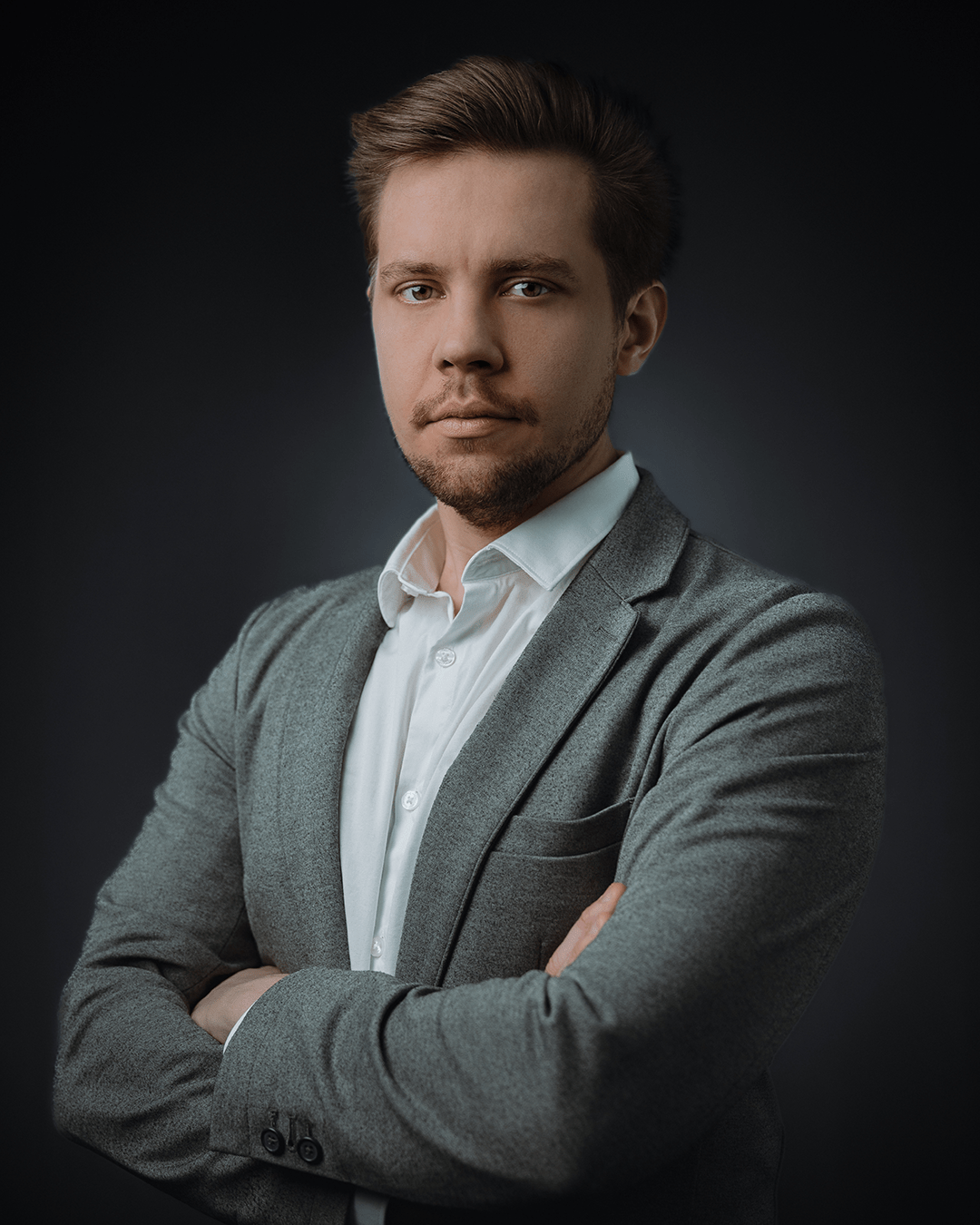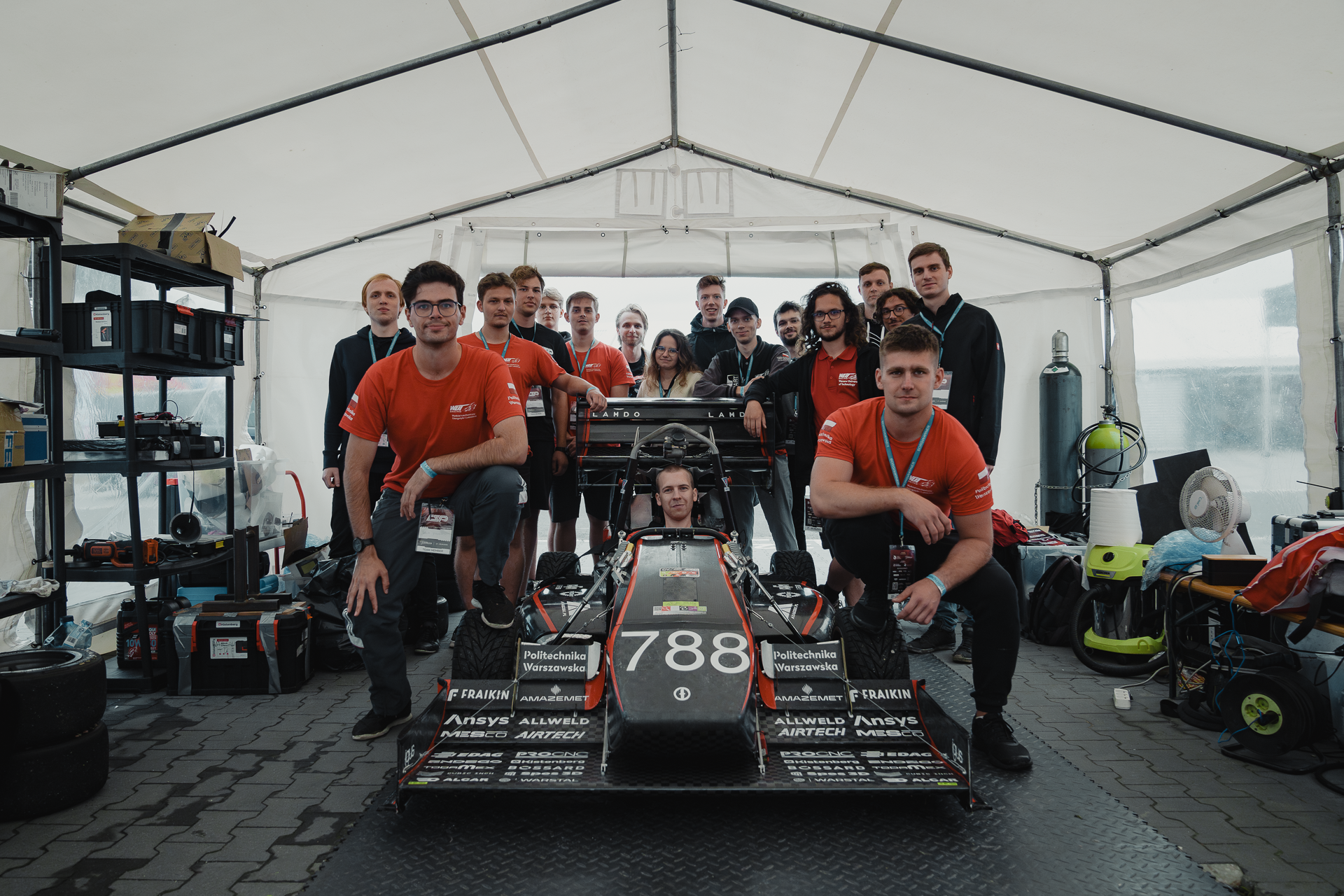RESEARCH & DEVELOPMENT
why collaborate?
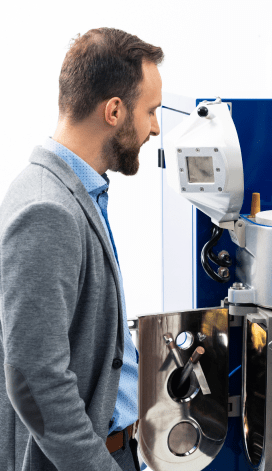
One of the most important challenges facing the development of science and industry is the formation of partnerships that foster interdisciplinary and international cooperation – for example, research project collaborations between companies and universities. Over the past few years, AMAZEMET has participated in more than 30 consortia involving projects such as EIC Pathfinder, M-ERA.net, Horizon 2020, and ESA-funded projects.
The greatest value for partners who collaborate with AMAZEM ET is the scientific support of the Warsaw University of Technology. The specialists involved in these projects have extensive experience in materials engineering, and they understand the need for research and development. Applying these skills while using innovative technologies, such as ultrasonic atomization, makes AMAZEM ET a unique contributor to the consortium.
The expertise we share
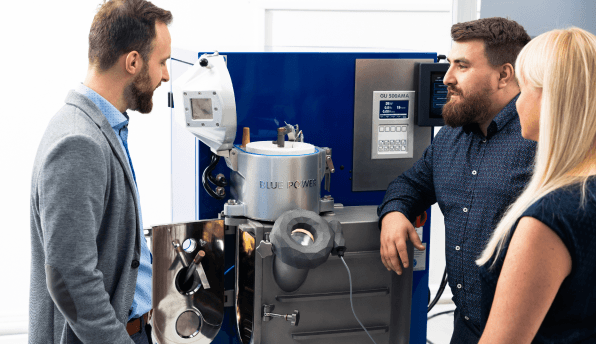
A Ph.D. student needed 200 g of bulk metallic glass powder for his research on alloy design for laser powder bed fusion, but gas atomization services exceeded the project budget by two times. The solution was already out there, but it had been forgotten for 40 years -ultrasonic atomization. Upon rediscoveringthis technique, it was decided to build a new system and produce the powders in-house.
This is the story of AMAZEMET founder and inventor, Łukasz Żrodowski, and the origin of the company’s core mission: to broaden scientific possibilities in materials science and metal 3D printing by spreading knowledge and delivering novel tools for researchers worldwide.
This mission has grown over time, focusing on values such as sustainability, providing a closed-loop production chain for metal 3D printing, and the development of industrial metal additive manufacturing (AM). Being both a production company and a Warsaw University of Technology spin-off, AMAZEMET combines the understanding of relevant fundamental science and academic environments with industrial processes and needs.
Professionals who create pioneering solutions with passion every day
The equipment we enable access to:
Laboratories fully equipped to perform atomization of nearly any alloying system
A highly-skilled interdisciplinary team eager to solve complex engineering problems
Expertise in fields related to material science, ultrasonic, and vacuum technologies, metal casting, additive manufacturing process
Access to additional resources at the Warsaw University of Technology
A 3D printing machine with integrated direct metal laser powder bed fusion (LPBF) technology dedicated to optimizing new materials
The possibility to fabricate metallic powders with tailored chemical compositions
Experts ready to help
Scientific partnerships




Project calls we participate in
Additive Manufacturing of Amorphous Metals for Soft Magnetics.
High-manganese steels to develop gradable coating systems by work hardening for sustainable wear protection applications.
Development of additively manufactured magnesium-based biodegradable scaffolds and implants for orthopaedic applications.
New Approach to Additive Manufacturing of Microstructurally Optimized Steels.




collaboration effect
- Collaborations
- 2023-11-21
- Collaborations
- 2023-11-21
Materials ENGINEERING
The field of materials science is captivating as it centers on comprehending the characteristics of various materials and devising novel materials with improved capabilities. In materials engineering, scientists analyze the atomic and molecular structures of materials and their correlation to their properties. Through their grasp of the fundamental principles of material behavior, they can produce new materials with specific traits such as increased durability, strength, or conductivity.
Materials Engineering: Experimentation, Testing, and Utilization of Advanced Tools
The process of materials engineering involves extensive experimentation, testing, and utilization of sophisticated instruments and methodologies such as microscopy, spectroscopy, and computer modeling. It also necessitates knowledge of physics, chemistry, and engineering, alongside creative and problem-solving skills. The objective of materials engineering is to produce materials that can be employed in innovative ways such as advanced electronics, sustainable energy technologies, and medical implants.
Materials Engineering in Metal Additive Manufacturing
In recent years, materials engineering has gained importance in metal additive manufacturing or 3D printing of metal components. In this process, metal parts are made by layering small amounts of metal powder, melting it with a laser or electron beam and fusing it together. Materials scientists in this area are focused on developing new metal powders and alloys that can create stronger, durable, and intricate structures than previously feasible.
Challenges in Materials Engineering for Metal Additive Manufacturing
One of the significant challenges in materials engineering for metal additive manufacturing is producing materials that can endure the extreme temperatures and pressures during 3D printing. Materials scientists need to study the microstructure of the metal powders and their behavior when heated and melted. They must also account for factors like porosity, surface roughness, and residual stresses, which affect the properties of the final printed part.
Developing New Materials for Metal Additive Manufacturing
The development of new materials for metal additive manufacturing necessitates extensive experimentation and testing, using advanced techniques like x-ray diffraction and electron microscopy. It also requires collaboration between scientists and engineers from various fields like physics, chemistry, and mechanical engineering. By innovating new materials for metal additive manufacturing, materials scientists are advancing this rapidly growing field and opening up new possibilities for innovation in engineering and manufacturing.
The Importance of Materials Engineering
Materials engineering plays a critical role in both conventional manufacturing and metal additive manufacturing. By studying the characteristics of different materials and creating novel materials with improved performance, materials scientists are contributing to a brighter future for industries ranging from aerospace to medical devices.
Contact with us
Your message will be received by our sales and application team. Based on your message we will choose the team member who could help you the best.
We will contact you by email within 3 working days.


